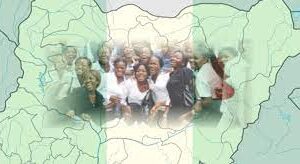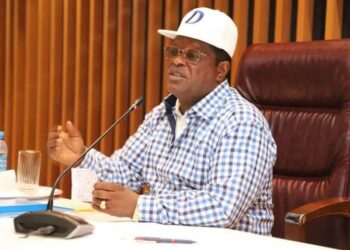Abdullahi M. Gulloma
President Muhammadu Buhari, last week, attended the 4th Africa-Arab Summit in Malabo, Equatorial Guinea. Jointly organised by the African Union Commission and the League of Arab States, the summit focused on promoting development by strengthening trade, investments, transport, communication and energy among Gulf and African states.
The summit, which was attended by Heads of State and Governments from the Gulf and African countries, expectedly, endorsed the Malabo Declaration and Action Working Plan for 2017-2019 to promote trade and economic ties among African states. The two-year plan seeks to implement priority projects in trade, investment, transportation, communication and energy in Africa.
During the summit, the President held discussions with Arab leaders to review agreements aimed at boosting agriculture and infrastructural development in Nigeria, through long term concessionary loans and technological skills transfer.
He also sought for support for the ongoing fight against Boko Haram and the humanitarian situation in the North-east.
The President of the Equatorial Guinean, Obiang Nguema Mbasogo, in his speech, said that there are many things in common between Africa and Arab countries, like history, culture and religion, etc. He hoped Africa can emerge and increase its position in international arena. He asked the Arab countries to help Africa emerge by providing advanced technologies.
General-Secretary of Arab League, Ahmed Abou EL Gheit, said the security situation in Africa is related with the security situation in the Arab region, and hoped the two regions strengthen their cooperation in the concerned areas.
At the summit, the African Union President, Nkosazama Dlamini Zuma, called on the youth in the two regions to promote their communication and cooperation in order to face the challenges of the new era.
And the challenges are many. Although, the rate of poverty in Africa, which appears to be the most serious problem afflicting the continent, has dropped in recent years, rapid population growth means that the number of people suffering poverty keeps growing.
Of the 20 countries in the world with the worst food and nutrition security, 19 are said to be in Africa. Statistics from experts indicate that more than two out of five African adults cannot read or write. Health outcomes are worse in Africa than anywhere else in the world, even though life expectancy at birth has risen and chronic child malnutrition has declined since the mid 1990s.
Tolerance of domestic violence is twice as high as in the rest of the developing world. Incidents of violence against civilians are on the rise.
About 400 million Africans lived in cities in 2010, and 60 per cent of those people lived in slums with no access to basic services. By 2050 that number is expected to grow to 1.26 billion. By 2035 half of all Africans will probably live in cities, with continuing urbanisation expected thereafter. Yet no provisions, in terms of infrastructures, seem to be made for the would-be city dwellers.
Fortunately, while the most upsetting situation for Africa was succinctly highlighted in a recently published report from the Africa Growth Initiative at the Brookings Institution, ‘Foresight Africa: Top Priorities for the Continent 2016,’ the report provided some solutions to the African problems
Regrettably, the report said that the Trans-Pacific Partnership (TPP) and the Transatlantic Trade and Investment Partnership (TTIP) — neither of which includes sub-Saharan African countries — will offset many of the trade benefits African countries currently enjoy under America’s Africa Growth and Opportunity Act (AGOA).
It, however, said that the primary responsibility for addressing these challenges rests with Africans. African businesspeople will have to create the industries that will generate the jobs African workers need. African teachers will have to provide the education that African children need to be economically productive and politically effective.
African nurses and doctors will have to do the hard work of raising the quality of healthcare Africans need. African parents will have to give their children the love, security, and discipline they need to grow into responsible and courageous adults.
African political leaders will have to make the changes that will reduce corruption and generate the laws, policies, and practices needed to enable and encourage these preceding non-political efforts.
And, above all, African citizens will have to create the popular pressure to push African governments to make the necessary changes.
And, this is where the job is for President Muhammadu Buhari. The President must organise the country’s youth, politically and economically empower them, to be vigil and check excesses of the nation’s corrupt leaders.
This, he has started, but more needs to be done to encourage especially the youth to shun and expose corruption.



